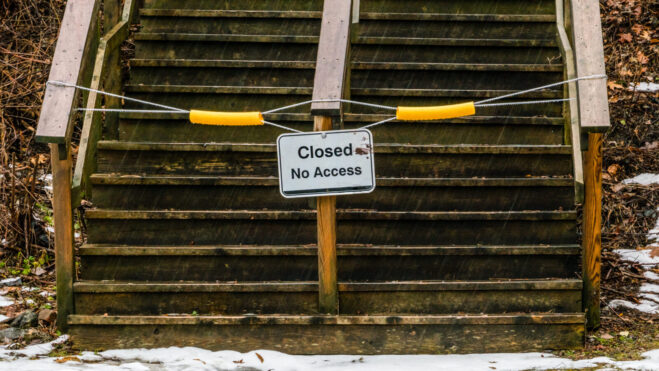GiG Q2 Investors Call Colored By Uncertainty Of US Sweeps Regulatory Future
Online gaming company weighs global opportunity while operating in North America
3 min

A quote stood out from the Gaming Innovation Group (GiG) Q2 investor call late last week. It came from GiG Platform and Sportsbook CEO Richard Carter, and it came during the Q&A session following the presentation.
The moderator, Hjalmar Ahlberg of Redeye TV, was asking about GiG’s new sweepstakes casino platform, SweepX, whose main target is U.S. operators.
“I think it’s also worth pointing out,” Carter said, “this is not just U.S. There are really big sweepstake markets in other countries, which you’ll see us going to as well over the next 12 months.”
Make no mistake: GiG, an online gaming company with an affiliate content arm as well as its own betting and gaming platforms, has a heavy focus in the U.S. That’s not going to change. Carter said their pipeline grew from €39 million to €50 million this quarter in large part because of “big quoted U.S. companies” that are “wanting to deploy a lot of capital” and use SweepX.
But also make no mistake about this: Any company relying in any significant way on U.S. sweepstakes casino revenue is aware of that sector’s uncertain future in North America.
Headaches piling up for US social casino industry
In recent months, the U.S. gambling industry has moved its magnifying glass of scrutiny from DFS pick’em games to social and sweepstakes casinos. These operators are active in most U.S. states, including those where iGaming is illegal, because social casinos (like Chumba Casino and LuckyLand Slots) exploit a legal loophole by having players use fake digital currencies with no real-world value.
However, players can also use a form of currency (Sweepstakes Coins or Sweeps Coins) that can be redeemed for cash prizes.
And that’s the root of the issue.
In Michigan, the state’s gaming control board has issued cease-and-desist letters to operators VGW (which runs LuckyLand, Chumba Casino, and Global Poker), Prediction Strike Inc., and Sweepstakes Limited (Stake.us), claiming these companies marketed and offered iGaming in Michigan without being licensed to do so. VGW left Michigan in late 2023.
In Georgia, VGW and its subsidiaries are facing a class action lawsuit from gamblers over the alleged misleading nature of their “just for fun” games that, the lawsuit claims, actually promote real-money gambling via their dual-currency systems.
In Delaware, regulators have also sent a cease-and-desist letter to VGW, asking that residents of their state not be able to play online casino games for cash prizes.
In Washington, High 5 Games was found in June to be offering illegal online gambling under the Recovery of Money Lost at Gambling Act and Washington Consumer Protection Act. A court ruled that High 5’s virtual coins should be considered “things of value.”
And in Kentucky, the owner of Pulsz Casino, Yellow Social Interactive, settled a class action lawsuit in April for $3.6 million. The lawsuit alleged Pulsz broke Kentucky laws by offering in-game currency that facilitated real online gambling.
The AGA throws its hat into the ring, too
On top of this groundswell from individual states, the American Gaming Association declared its position on social and sweepstakes casinos in mid-August, saying these operators get around gambling laws to offer nearly the same product as real-money operators but without any of the taxes or regulation.
“The lack of regulatory oversight presents many risks for consumers as well as the integrity and economic benefits of the legal gaming market through investment and tax contributions,” the AGA said in its policy statement. “These sweepstakes-based operators have weak (if any) responsible gaming protocols and few, if any, self-exclusion processes.”
The AGA represents U.S. gambling operators. It advocates for commercial and tribal gaming entities in the country.
“We entirely reject several of the AGA’s assertions,” a VGW spokesman told the Financial Review in response to the AGA statement. “We have full confidence in our compliance with all laws and regulations where we operate.”
GiG on regulatory future: ‘The risk is quite binary’
The sweepstakes casino industry isn’t going to disappear. It will still be a big-money business worldwide and in the U.S., where only seven states have legalized real-money iGaming — so the demand for sweepstakes casinos is alive and well.
However, what the sweepstakes industry looks like moving forward is a bit more at question.
Will it eventually face the same level (or a similar level) of regulation that real-money online gambling does?
Ahlberg asked Carter specifically about that uncertain regulatory future.
“The risk is quite binary I guess. If it’s regulated and we’re in there, then you’ve obviously got taxes to deal with,” Carter said. “And then if it’s unregulated, then we have to deal with that. But, as I said, there is a very established legal sweepstakes business in the U.S. So we’ll see what happens.
“But this is us being quite opportunistic. There’s a huge opportunity. And it is sort of, you could argue, a grayish market, and it will just be a portion of our business going forward, and that’s how we’ll manage it.”
Carter emphasized that the sweeps market has long-term earning potential for GiG.
“We think in a 5-to-7-year view, this still holds big, big opportunity for us,” he said. “And obviously it’s very early days. I can’t tell you how sweepstakes works in a regulated New Jersey market versus other markets, but from the people I’ve been talking to, they’re telling us that it works also very well in regulated markets. We think it’s a big opportunity.”






